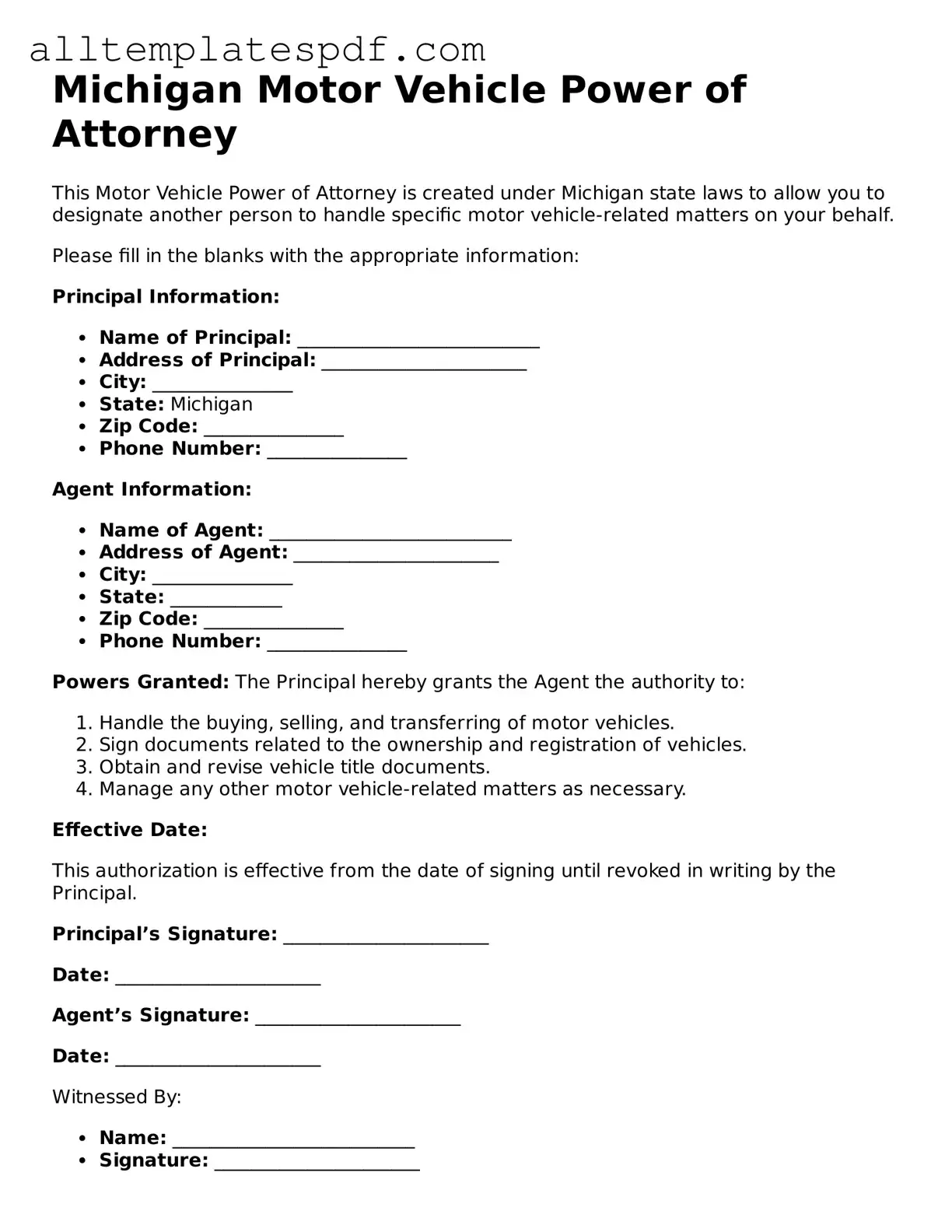Blank Motor Vehicle Power of Attorney Template for the State of Michigan
The Michigan Motor Vehicle Power of Attorney form is a legal document that allows one individual to designate another person to handle specific tasks related to motor vehicle transactions on their behalf. This form can be particularly useful for those who may be unable to manage their vehicle affairs due to various reasons, such as being out of state or having health issues. By granting this authority, individuals can ensure their vehicle-related matters are addressed efficiently and effectively.
Ready to take control of your motor vehicle transactions? Fill out the form by clicking the button below.
Open Editor

Blank Motor Vehicle Power of Attorney Template for the State of Michigan
Open Editor
Fast and easy form completion
Complete Motor Vehicle Power of Attorney digitally — fast and easy.
Open Editor
or
↓ Motor Vehicle Power of Attorney PDF Form
